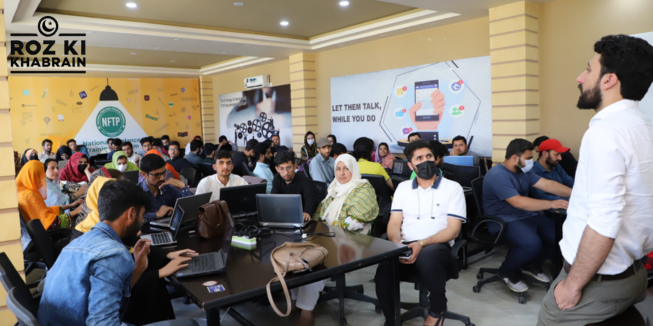From the United States to Pakistan: Women Politicians Targeted by Deepfake Scandals
Across the globe, from the United States to Italy, Britain, and Pakistan, female politicians are increasingly falling victim to AI-generated deepfake or sexualized imagery. This alarming trend, experts warn, poses a serious threat to women’s participation in public life.
The rapid growth of non-consensual deepfake content is outpacing global regulatory efforts, with affordable AI tools, including photo apps that digitally undress women, fueling the problem. Such imagery is weaponized to damage reputations, derail careers, undermine public trust, and even create blackmail risks, experts caution.
In the United States, the American Sunlight Project (ASP), a disinformation research organization, identified over 35,000 instances of deepfake content targeting 26 members of Congress — 25 of whom are women — on explicit websites. According to ASP’s recent study, nearly one in six women in Congress has been targeted by such AI-generated content.
A Global Issue
In the UK, an investigation by Channel 4 revealed that more than 30 female politicians, including Deputy Prime Minister Angela Rayner, were targeted by an indecent website using AI to “nudify” their images without consent.
Meanwhile, in Italy, Prime Minister Giorgia Meloni is pursuing legal action, seeking €100,000 in damages from two men accused of creating deepfake videos of her. Meloni described this as “a form of violence against women” and emphasized the urgent need to fight this growing menace.
In Pakistan, lawmakers such as Meena Majeed and Azma Bukhari have faced culturally damaging deepfake attacks. Bukhari shared feeling “shattered” after discovering a deepfake video that superimposed her face onto the body of an Indian actor in a sexualized context.
Chilling Effects on Women’s Participation
The rise of deepfake technology has created an AI-driven “cottage industry” of digital exploitation, with users leveraging widely available tools to generate explicit content. Experts warn that these attacks have a “chilling effect” on women in politics, silencing ambitions and discouraging public participation.
While countries like the UK and some US states have introduced laws against sexualized deepfakes, regulation remains inconsistent globally. Pakistan currently lacks legislation to combat the issue.
Though high-profile figures, including singer Taylor Swift, have been targeted, experts highlight that women outside the public eye are equally vulnerable. Organizations like ASP noted that while US Congresswomen saw their images removed swiftly after being notified, women without similar resources face a far harder battle to have such content taken down.
The unchecked proliferation of deepfake technology underscores the urgent need for stronger global safeguards to protect women in public life.




